Sprint 4: In To Deep Dive!
We successfully passed our second challenge attempt and have been approved to enter deep dive. The team is happy, excited, and relieved. We didn’t get here without some challenges— we started to encounter the unfortunate stigma around creating fighting games here at Champlain College. Sadly fighting games have not seen very much success here and have formed a reputation around them. There is a lot a team has to get right in order to have a good fighting game: satisfying input feedback, smooth controls, clear visuals, balanced mechanics, a huge amount of moves to facilitate lots of strategies— overall a ton of work and polished for everyone involved and not the typical level of game seen at Champlain College.
Fighting games are a lot harder to make then they seem because so much of it relies in the game feeling good to play. This aspect of “game feel” is what we have been told has lacked in past Champlain College fighting game projects. The trick though, to get to the point where us as game developers can iterate and adjust the game feel we have to have a working game first. This task of having a functional fighting game is no small one, yet we have made it there in four weeks! Much sooner than many teams of the past. We have proven that we can make a fighting game— that we can take on this incredible technical feat— and now we have the opportunity to flesh out what we want our game to be: a Lucha Libre game.
So when the five of us spend all of our free time dedicated to this game, proving that we can make a fighting game, explaining what Lucha Libre is, and how our game is different because of Lucha Libre— it sucks and hurts when a visiting faculty member asks us “how is this different from any other fighting game”.
Here are the slides we presented on:
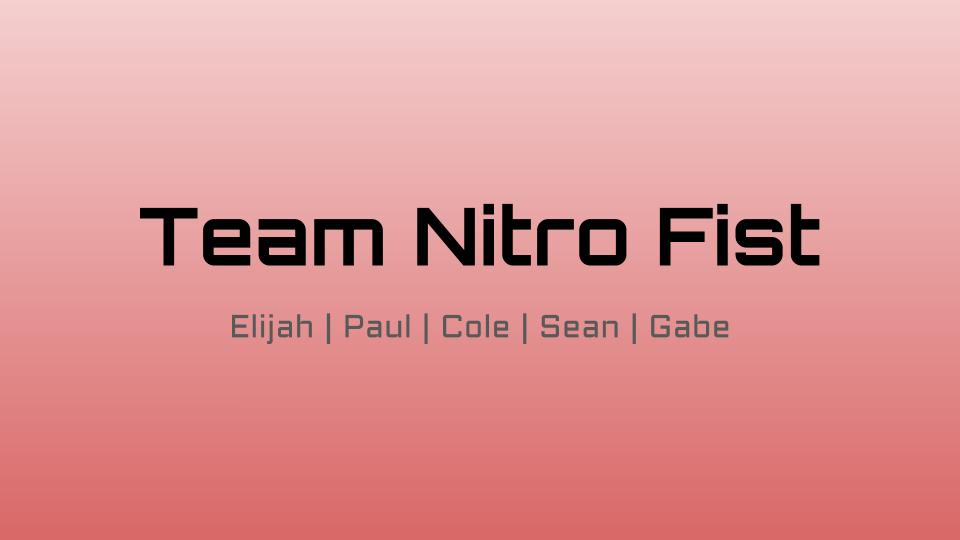
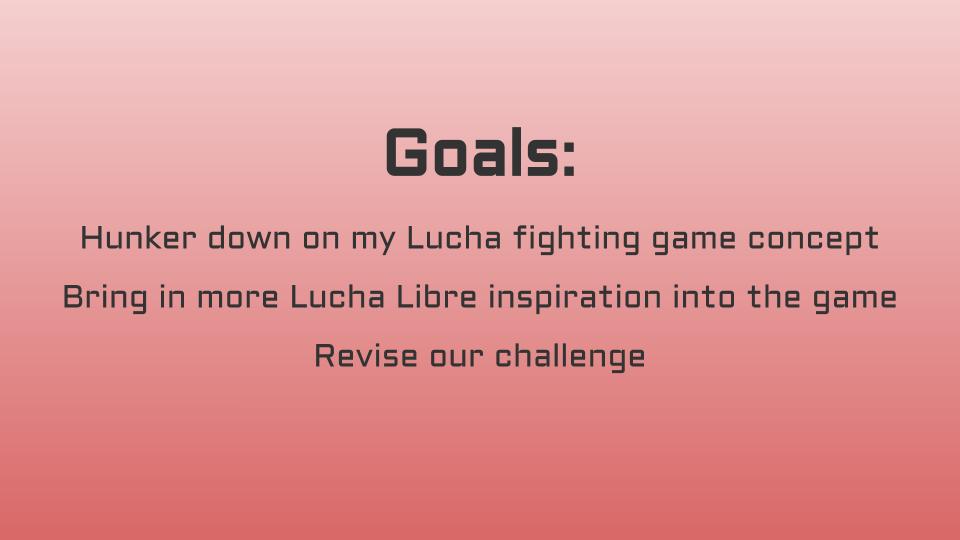
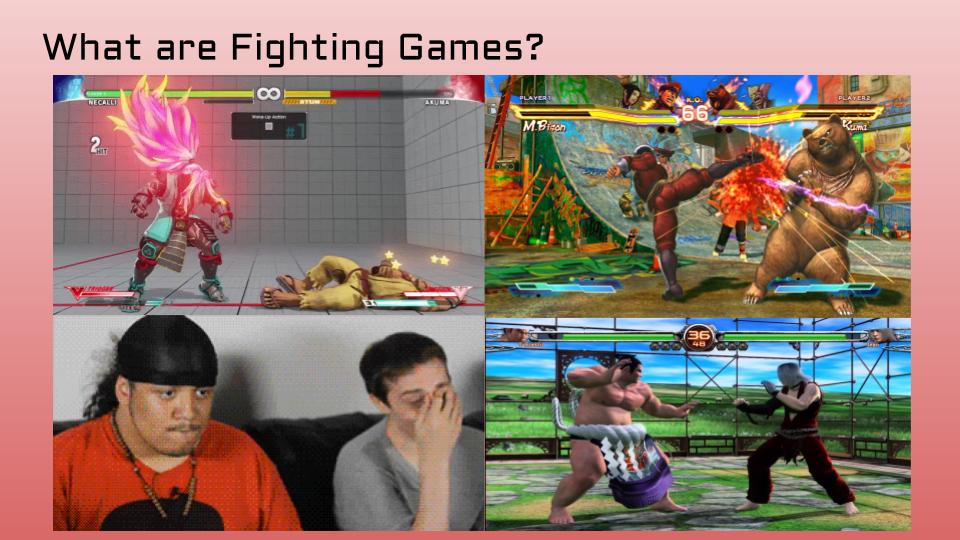

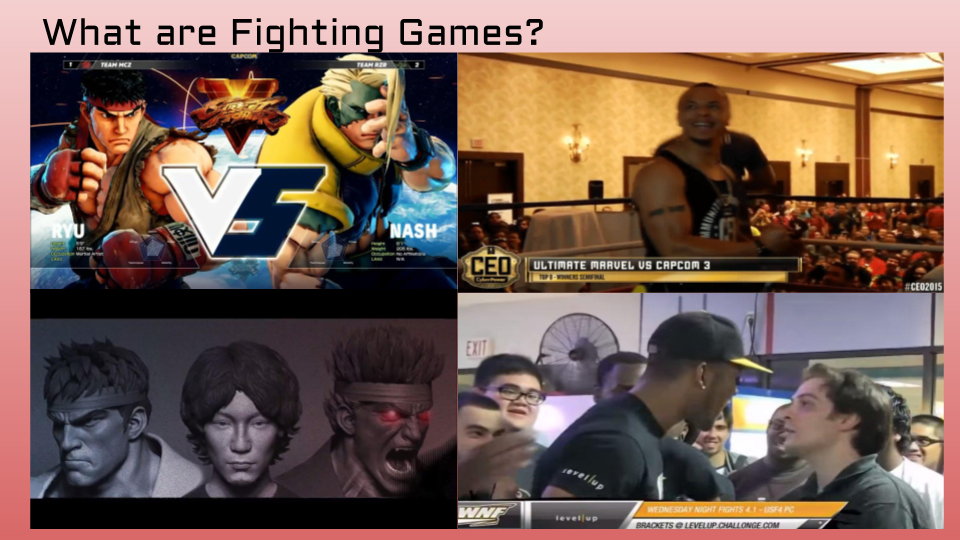

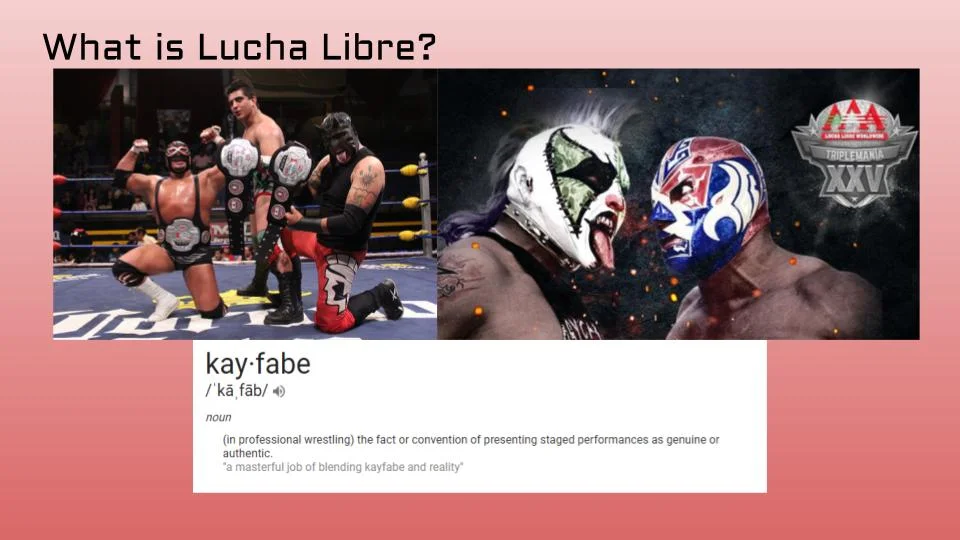
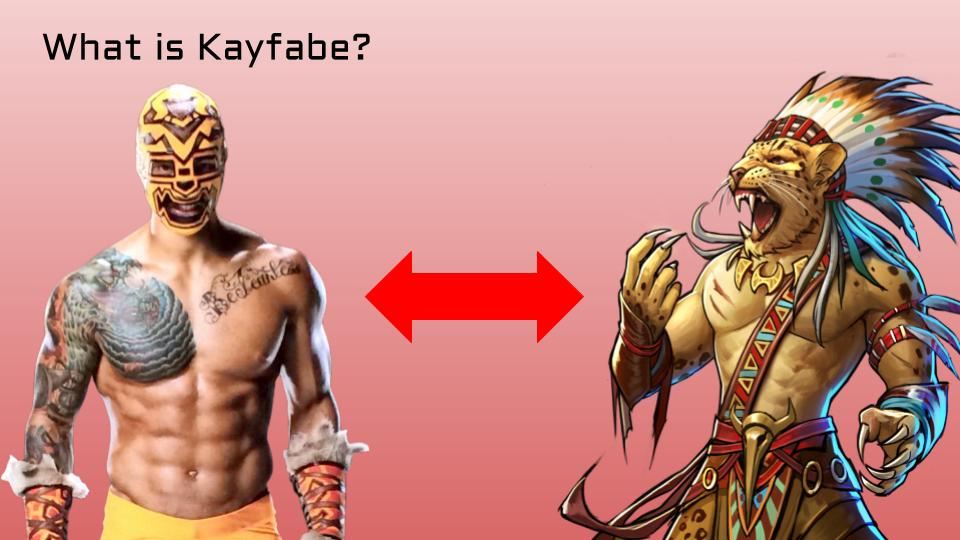
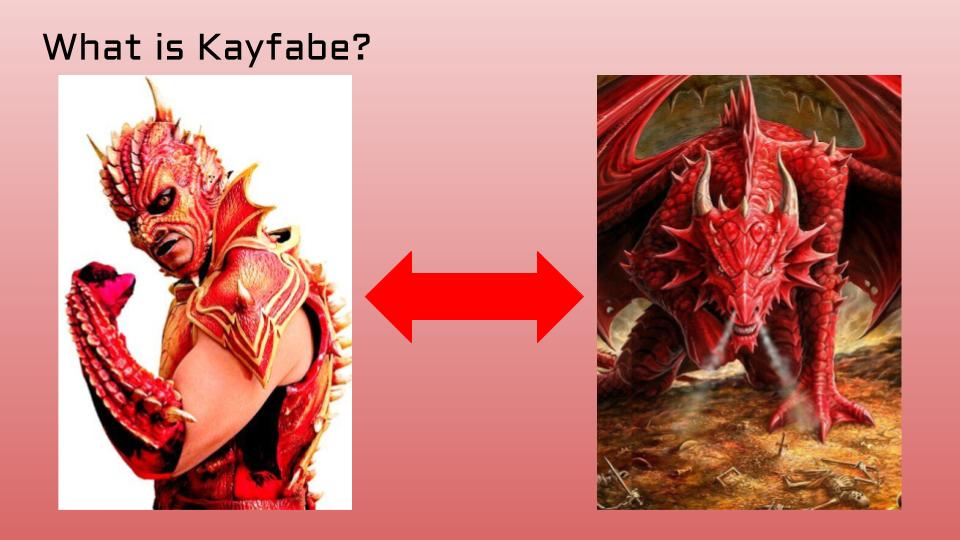
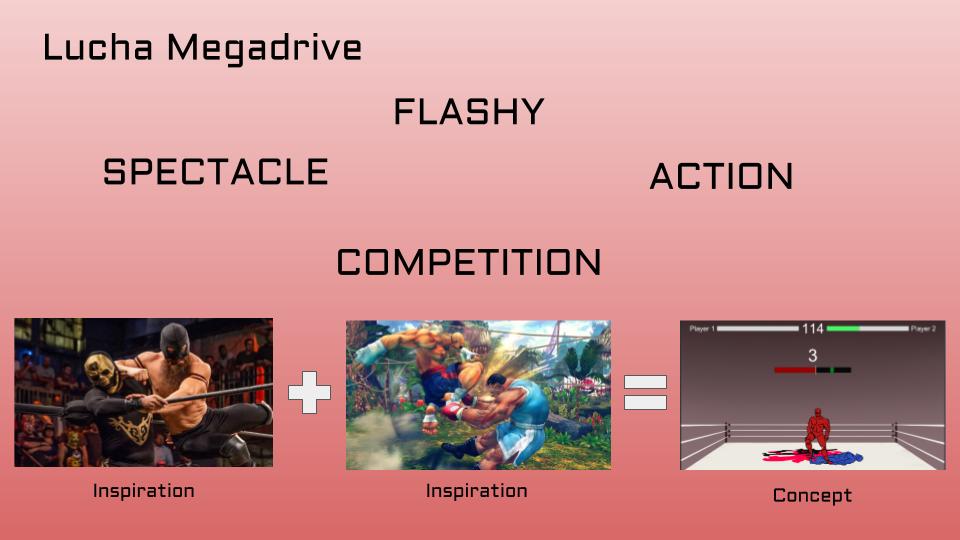
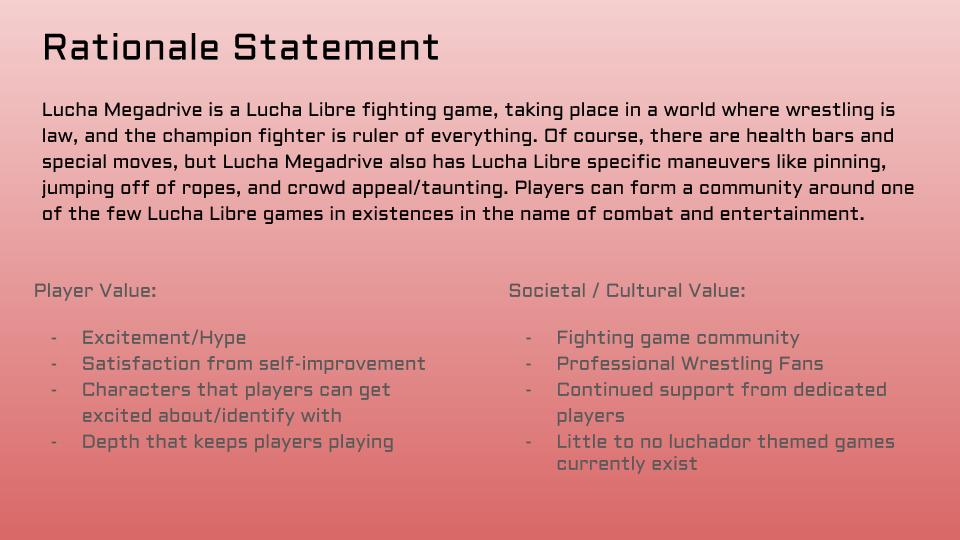
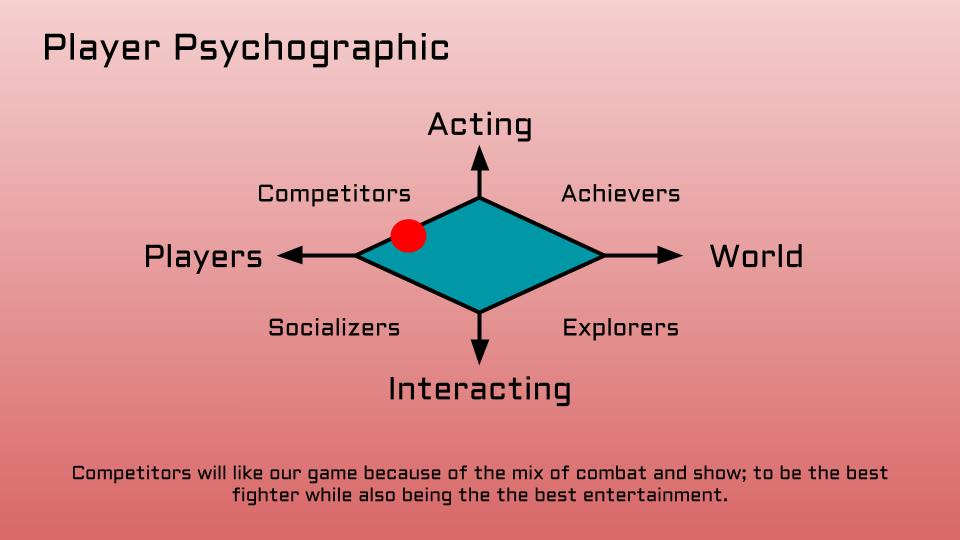
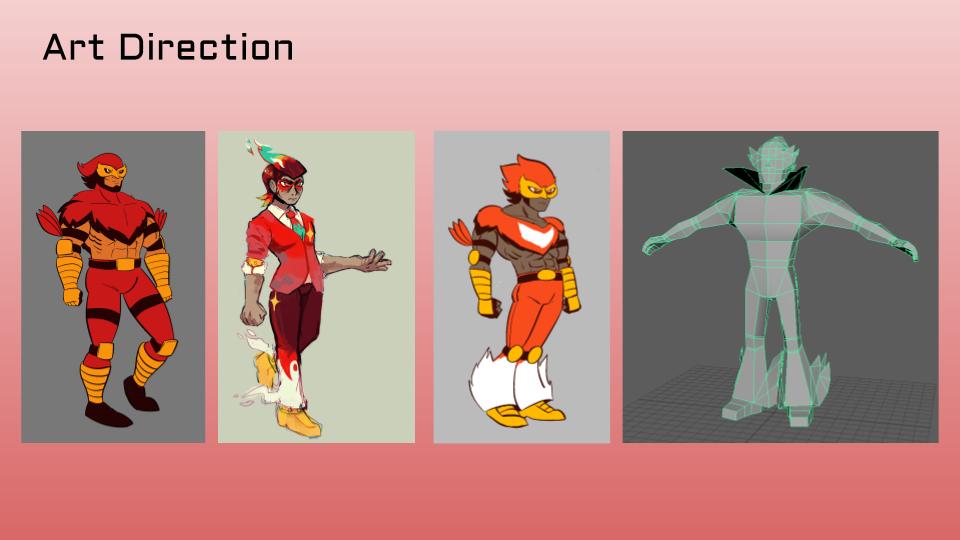
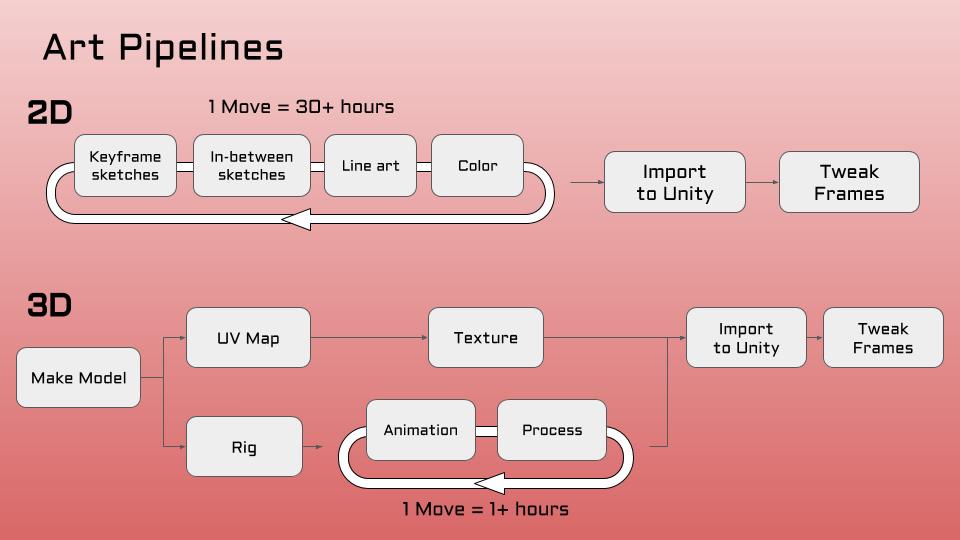
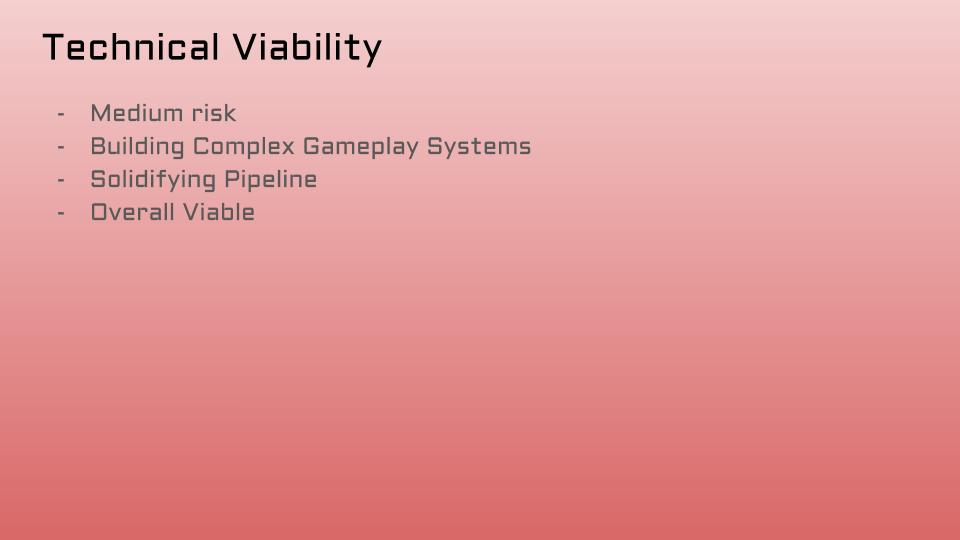
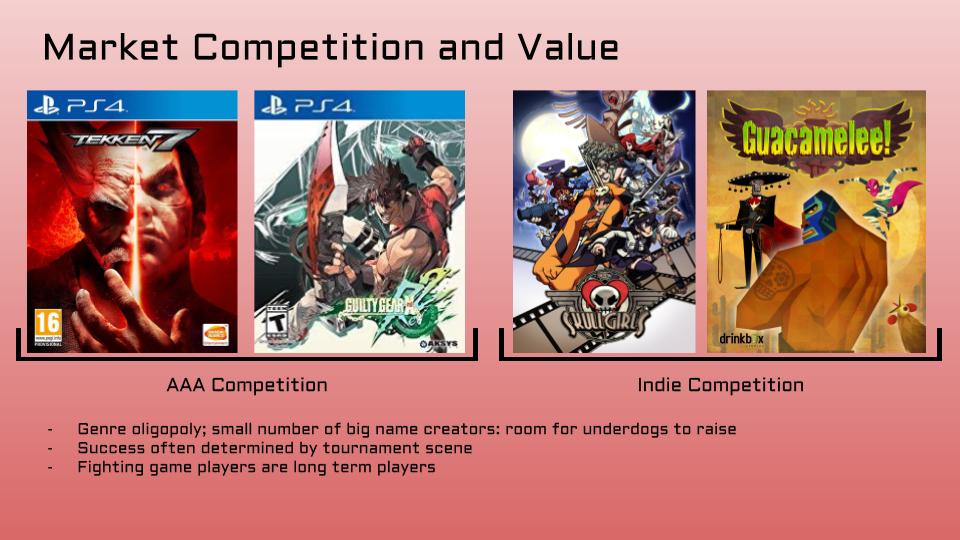
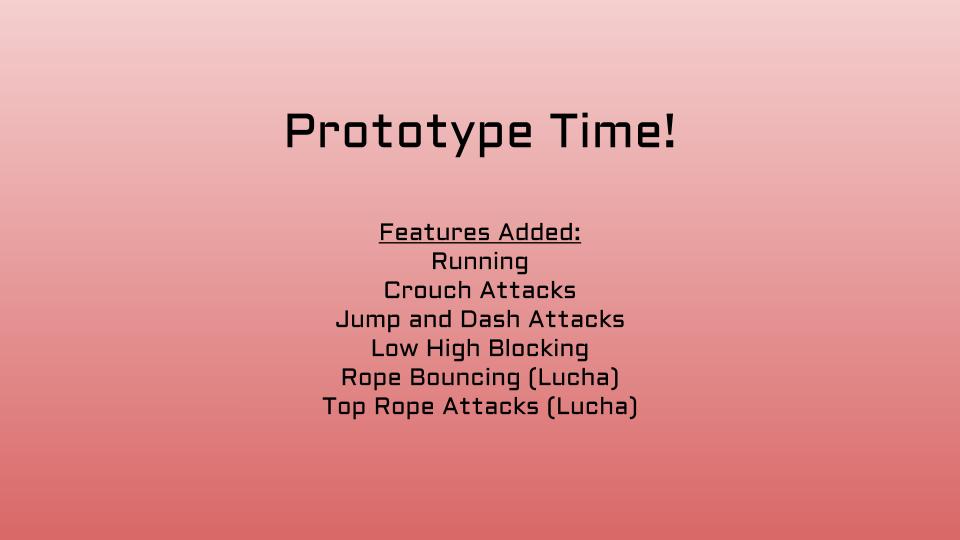
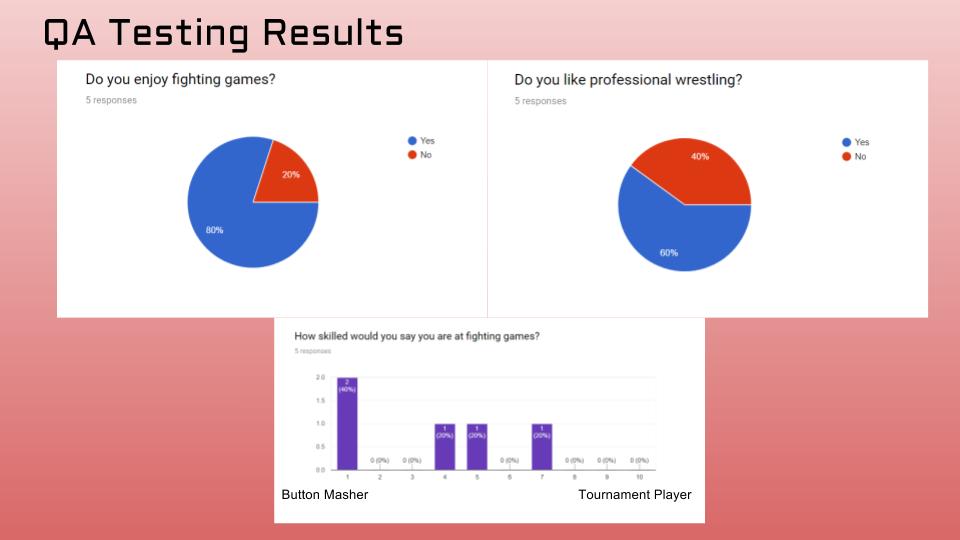
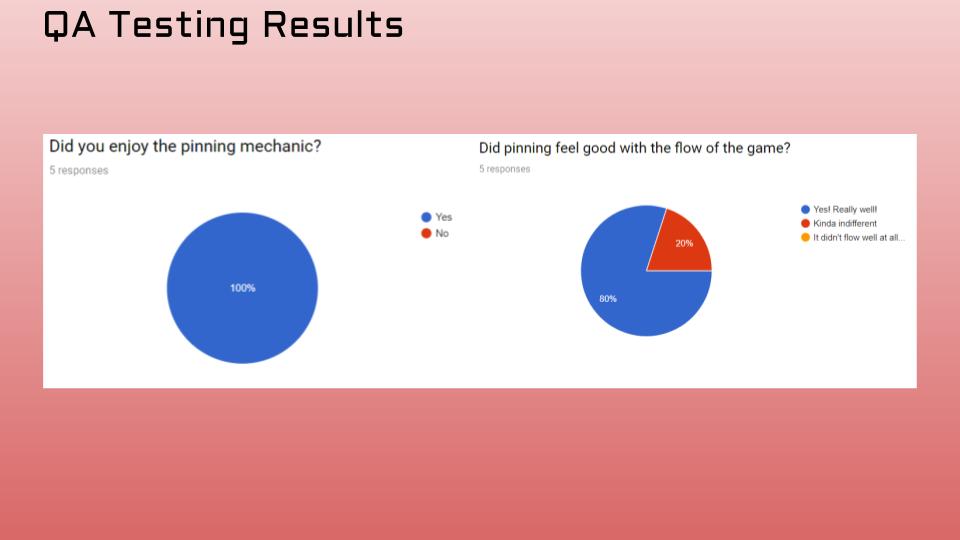
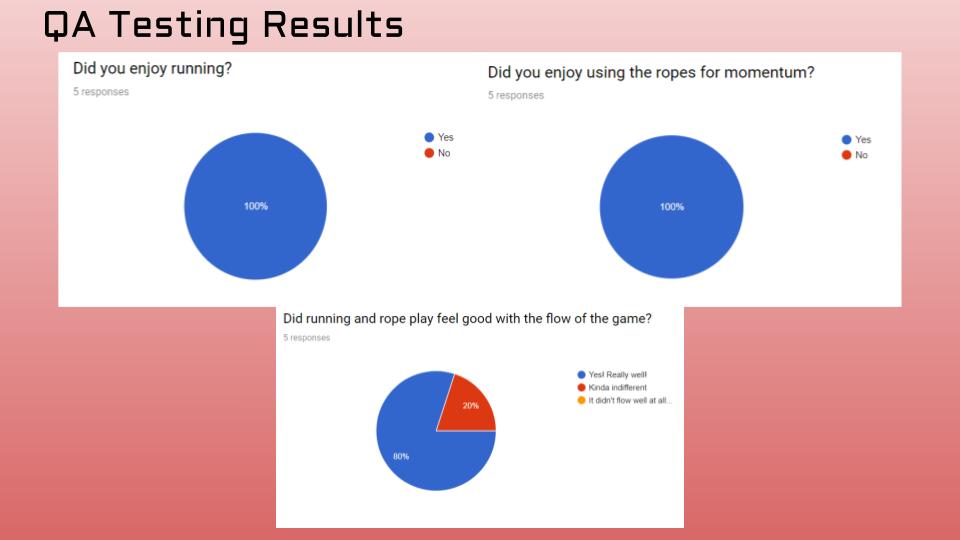
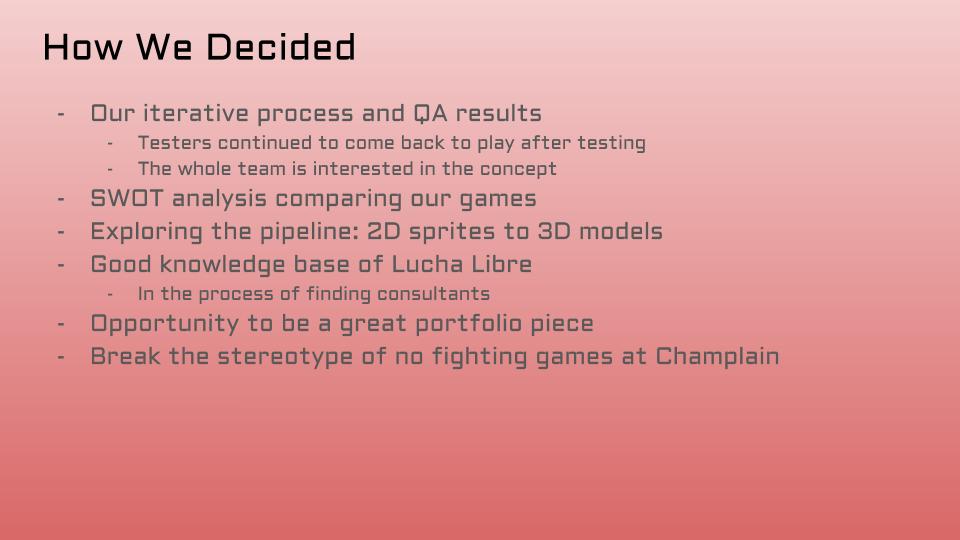
Having an experience like that was helpful for the team. We understand better the view point of the stigma mentioned earlier. We know being 95% clear isn’t good enough and we can’t leave any dots unconnected for the audience. In the future we do plan to have a specific slide on exactly how our game is different. We also learned that we need to make a distinction between Fighting games, beat’em ups, wrestling games, and anything that involves combat. While Champlain faculty are not the target audience of our game; ultimately because this is a class, they are the people who decide at the end of this semester if our team and game move on to full production next semester. In a lot of ways our team is the studio and the faculty are the publishers. We have to make sure they know who the game is for and why it should be made. We are working on our pitch every week and we plan to get better at it every time.
In truth, our sprint 4 review caused some deep emotions and deep thoughts that allowed us as a team to unite around. We did an extra long retrospective, restructured our meeting schedule, and did some rigorous planning so that we can prepare for all the shots that are going to get taken at us in the future. We knew we were going to be faced with a lot of immediate disregard because we aren’t making something simple and easy. We have done simple and easy for several years now in our curriculum. This is our College Capstone which is suppose to show off all of our skills. We are all passionate about this project and are willing to take on the work to make this right while also completing our other school requirements. We want to push the limits and make something great, a game that we love, a game that can be shown to demonstrate what Champlain College students can accomplish.